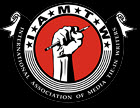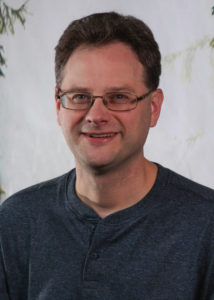We’ve all heard that writing fan fiction is something that professional writers don’t do. Fan fiction has a stigma attached to it of being vastly amateur and a waste of time for aspiring authors who should be cutting their teeth on their own works. The truth of the matter is that fan fiction has a very large fan base and can provide a great opportunity for new writers to hone their abilities. Yet, being paid for writing fan fiction has always been reserved for authors who sign literary contracts to write “media tie-ins.” The media tie-in was essentially the sole professional version of fan fiction until Kindle Worlds came along.
Kindle Worlds is a project from Amazon that allows authors to write licensed fan fiction in any of the licensed world. Authors can earn royalties (typically 30%) from their works in a licensed world. Works can be any length from short story to full novels. The only “catch” is that Amazon and that licensed world own your story in perpetuity. Licensed worlds include the worlds of bestselling authors Hugh Howey, Bella Andre, and Kurt Vonnegut. Other worlds include television properties (Vampire Diaries, Wayward Pines, Veronica Mars) and comic book properties (G.I.Joe: A Real American Hero, Quantum and Woody, XO Man-o-War). All an author has to do is have an idea, check the Kindle Worlds quality/content guidelines for that licensed world, write a story, and publish it. It’s licensed fan fiction, and I can say from experience, a huge opportunity.
A few years ago at the World Science Fiction Convention in San Antonio, I met Hugh Howey. We had a great conversation then, and ever since via infrequent emails. I first heard about Kindle Worlds from Hugh. Roughly about the time that I finished the second of his Silo Saga novels (SHIFT), I had an idea for a story in his universe. Knowing that the universe was available through the Kindle Worlds program, I worked up a story and promptly hesitated. On the cusp of submitting the story, I chickened out and emailed Hugh for advice. He told me to publish the story, and I did. I’ve published several short stories via Kindle, but none has sold like my Silo Sage novelette “Vessel.” It’s been out for a couple of years and has never left the Top 200 in Kindle Worlds Science Fiction and Fantasy, topping out at #3. The story has done nicely, putting some extra money in my account while generating name recognition. I never thought about name recognition as a by-product for Kindle Worlds until I had an idea for another story in a different universe.
As a kid, the cartoon series G.I.Joe: A Real American Hero was my favorite series of all time. When I saw that its universe was part of Kindle Worlds, I was amazed and thrilled. In the Kindle Worlds stories, there are some really good ones including those by bestselling author Carrie Vaughn and my friends Peter Wacks and Aaron Michael Ritchey. On a getaway weekend to Breckenridge a couple of years ago, I had an idea for a story in that universe and wrote it inside of a week. After some read-throughs and edits, I used the Kindle Worlds cover builder, formatted the book, and set it live. What happened next is surreal. About 24 hours after I set the title live, I had a Twitter notification on my account (@TheWriterIke). I’d been mentioned in a tweet from Amazon Kindle Worlds that reached almost 35,000 subscribers. They’d also tagged one of the major G.I.Joe toy collector groups, and they then retweeted it to another 6,000 subscribers. The story hit #7 in all of Kindle Worlds within the next few hours. I gained fifty or so Twitter followers. Like “Vessel,” my short story “Friends In High Places” has continued to do very well, and the fact that it’s licensed fan fiction is something I’m very proud of.
I believe firmly that writers should seek payment for our work. Exposure doesn’t pay the bills. Kindle Worlds is a perfect opportunity to play in someone else’s world while earning royalties and gaining exposure. Check them out at KindleWorlds.Amazon.Com and see if there is a licensed world you’re familiar with. Then, if the muse whispers in your ear, sit down and write the best story you possibly can. You never know what might happen with it.


